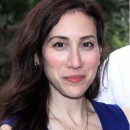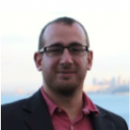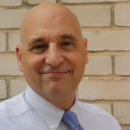Week of:
As Christmas holidays are almost here, I started my journey to my home country to spend some time with my family and friends. I called it “journey” because, unexpectedly, I had a 15 hour layover in Mexico City. It was not that bad since I had the chance to see with my own eyes some of the research that I’ve been doing regarding re-importation of drugs, where Mexico has been always involved in my analysis due to its low price for drugs compared with the U.S.. Nevertheless (and maybe more interesting) I had the chance to see the beautiful pyramids, so I really did not mind spending a whole day in Mexico.

Going back to the re-importation “issue”… The question is why U.S. patients are not allowed to reimport drugs from other countries where prices are significantly cheaper? For instance, a vial of the cancer drug Rituxan cost Norway’s taxpayer-funded health system $1,527, while the U.S. Medicare program paid $3,678. An injection of the asthma drug Xolair cost Norway $463, which was 46% less than Medicare paid for it (Note that the previous week-note has an interesting discussion about drug pricing, so I will limit my comments here about it). The main argument that the FDA has against re-importation and personal importation is drug safety.
An increasing proportion of personally imported drugs are currently marketed in the U.S., but imported drugs are presumably available at a lower cost to the consumer. Personal importation of prescription drugs into the U.S. has been a major health policy issue for some time. The original objective of personal importation was to allow patients to have access to drugs that were not available to them in the U.S. either for continuation of therapy begun in another country or when all US Food and Drug Administration (FDA)-approved drug options for their condition had been exhausted.
A second type on drug importation into the U.S. by consumers is known as re-imports or reimportation. Reimportation involves bringing back products that had previously been exported to other countries from the United States [2]. Drug reimportation is perceived as a costs-cutting strategy by Americans. Even though these drugs are often manufactured in the US, the drug-price control acts in countries like Canada and Mexico keep the prices of prescription medications lower than the U.S. market prices [3]. Estimates indicate that buying medicines from a certified Canadian pharmacy can save Americans 20%–80% on brand name drugs [4].
While safety is the most important barrier for legalization, efficacy, and therapeutic equivalency of reimported drugs are also points of discussion. These issues arise due to storage conditions while reimporting medications back to the US, and distinguishing between drugs that are manufactured in the US from those which were manufactured elsewhere [4]. Despite the fact that re-import considers importing back drugs that were manufactured in the US, it is extremely hard to check the real manafacturing origin[1]. Likewise, it is challenging to determine whether the drugs acquired from other countries have the same composition of active ingredient as the prescribed medication. On the other hand, the pharmaceutical industry criticizes the reimportation practice arguing that the recovery of the research and development (R&D) costs required for new drugs will be hard to obtain [5].
So what do we do now to reduce safety issues and increase control over reimportations? The answer may be HARMONIZATION. This is a new topic that the research team has been discussing lately. Harmonization is related to the coordination, in this case among countries and agencies, of standards and protocols that guarantee safety and a uniform drug delivery and production system. We will keep working towards this idea to try to provide new thoughts to make the price of drugs more accesible to patients in the U.S.
[1] Policy Implications of Drug Importation. Francis B. Palumbo, PhD, Esq; C. Daniel Mullins, PhD; Ashley F. Slagle, MS; and Jessica Rizer, Esq Department of Pharmaceutical Health Services Research, Center on Drugs and Public Policy, University of Maryland, Baltimore, Maryland
[2] Bhosle, M. J., & Balakrishnan, R. (2007). Drug importation practices in the United States. Therapeutics and clinical risk management, 3(1), 41.
[3] Wagner JL, McCarthy E. 2004. International differences in drug prices. Ann Rev Pub Health, 25: 475-95.
[4] Vivian JC. Canadian drug imports. US Pharmacists. 2003;28:7
[5] Paul Pecorino, Should the US allow prescription drug reimports from Canada?, Journal of Health Economics, Volume 21, Issue 4, July 2002, Pages 699-708,
[6] US Food and Drug Administration (FDA). FDA operation reveals many drugs promoted as “Canadian” products really originate from other countries. http://www.fda.gov/newsevents/newsroom/pressannouncements/ucm108534.htm. Accessed August 24, 2014.
[1] In 2005, the FDA intercepted 1700 parcels containing prescription drugs that were purported to be from Canadian pharmacies; 85% of the drugs were not manufactured in Canada but in 1 of 27 other countries [6].












